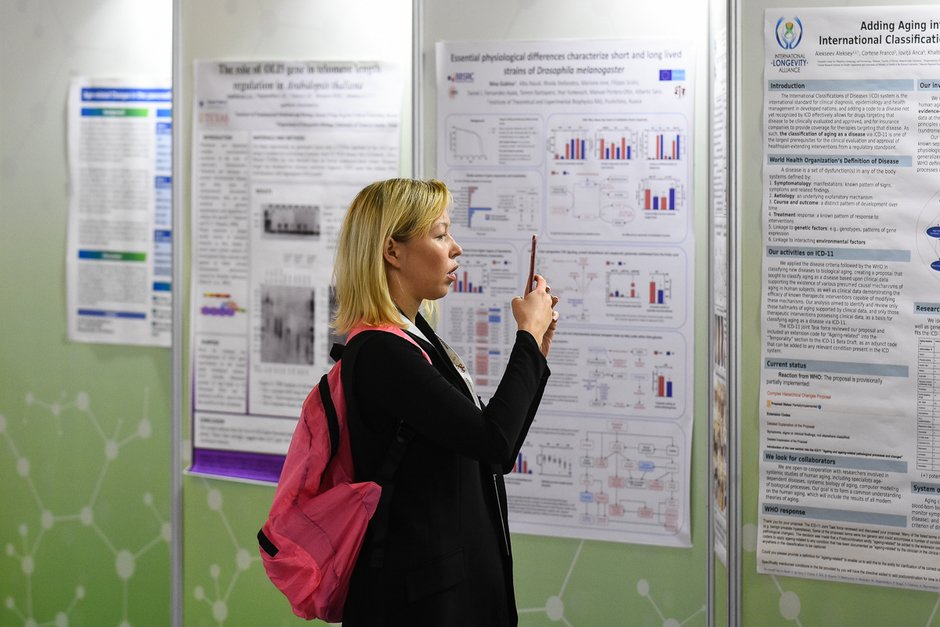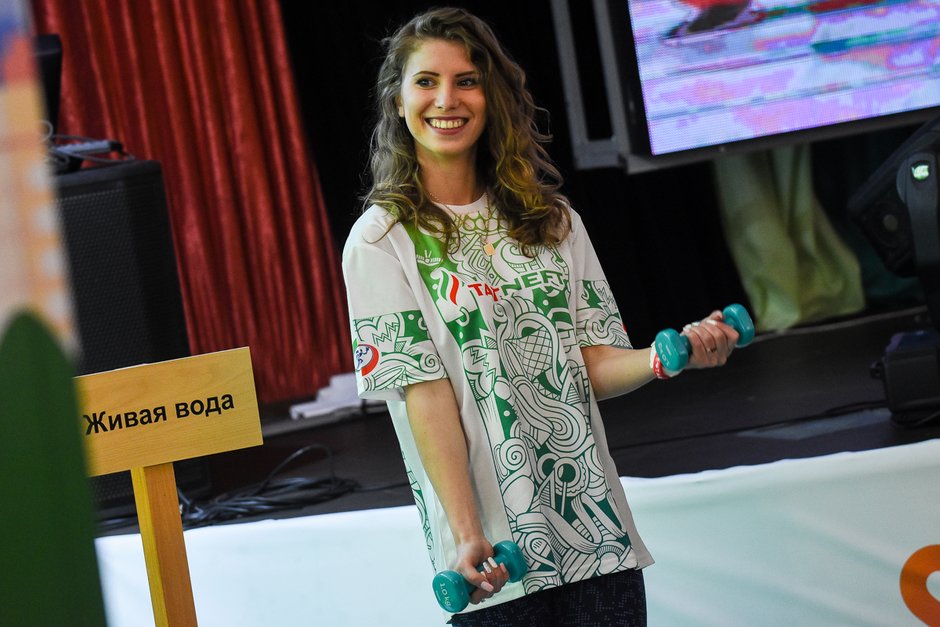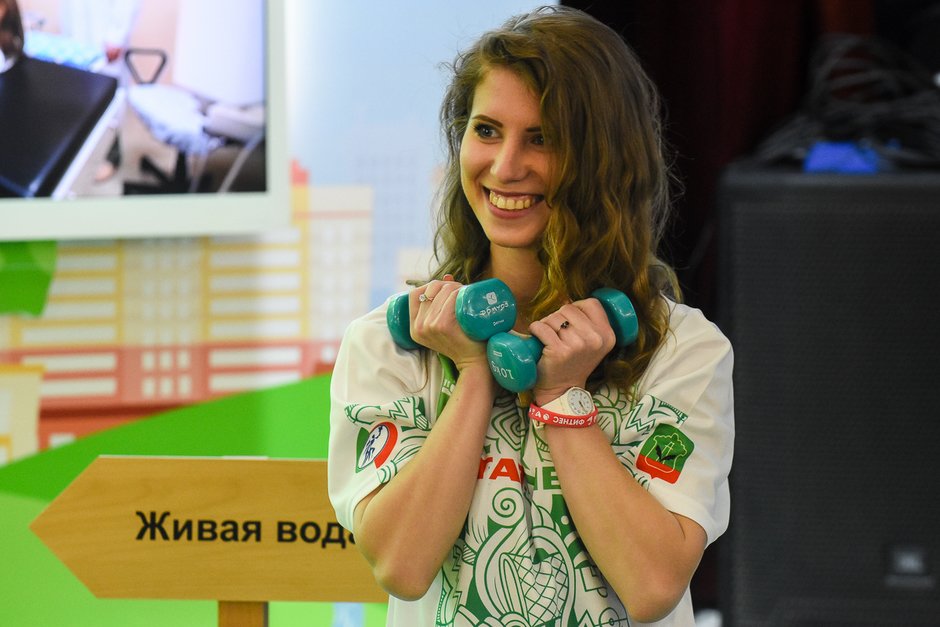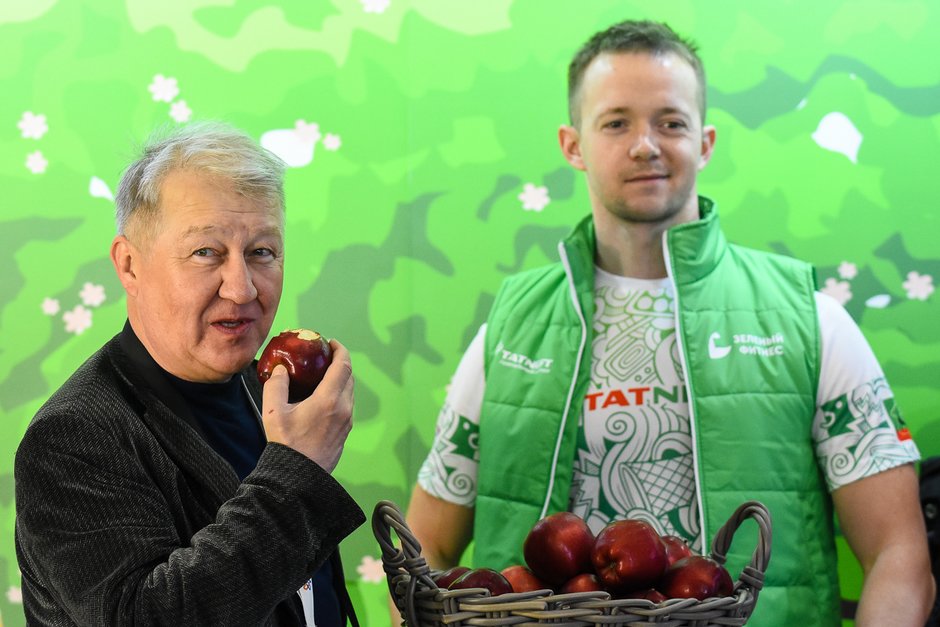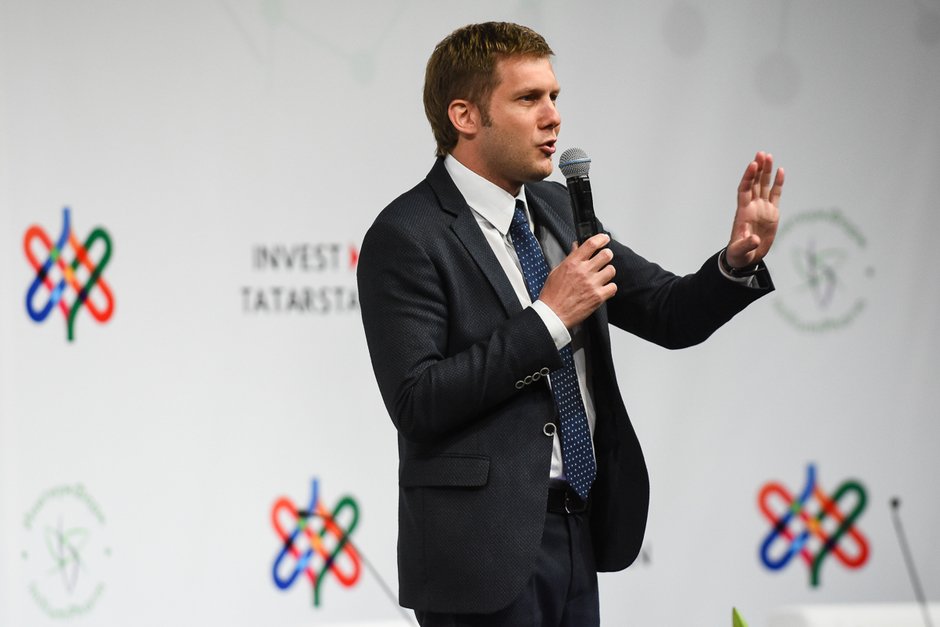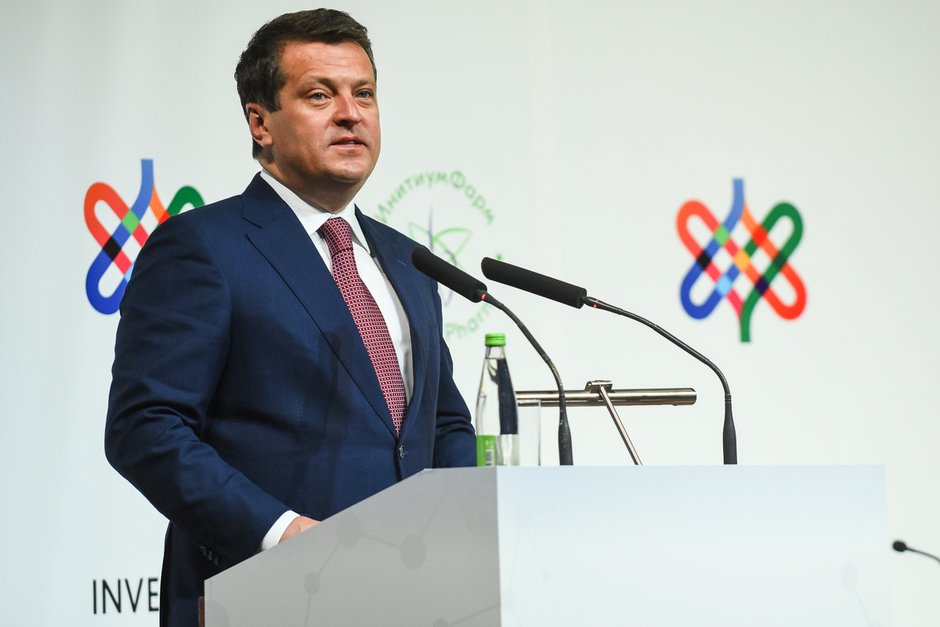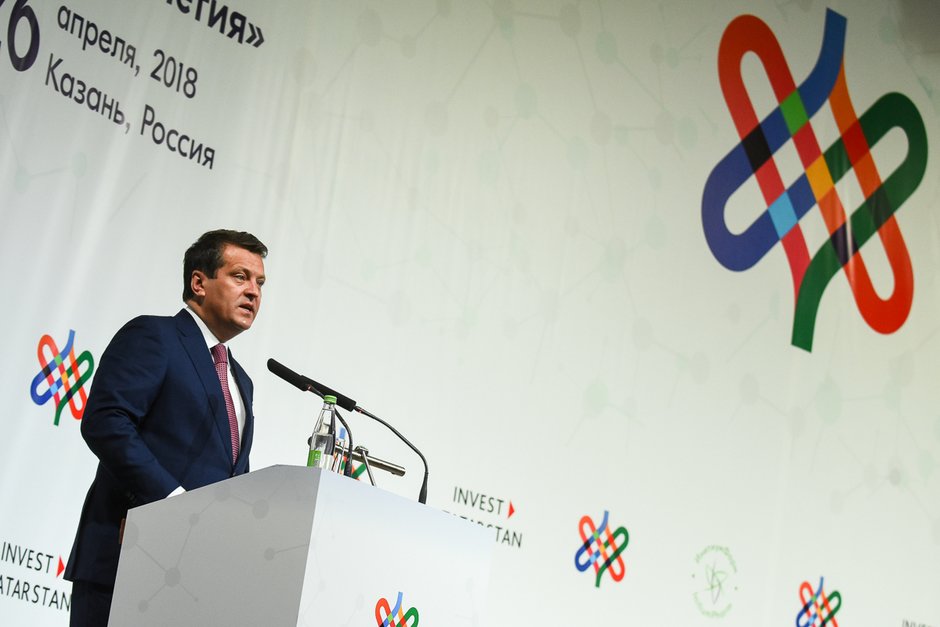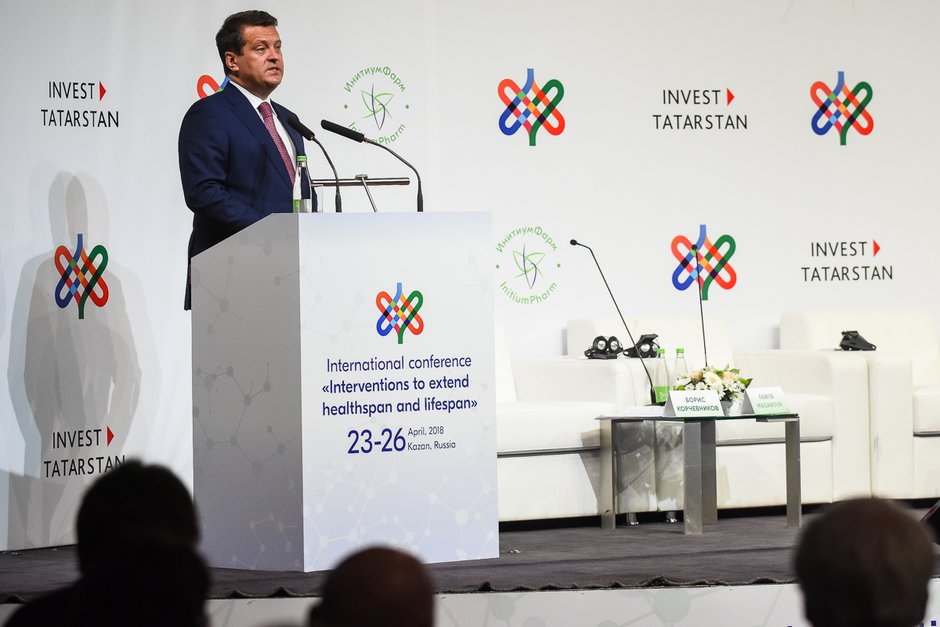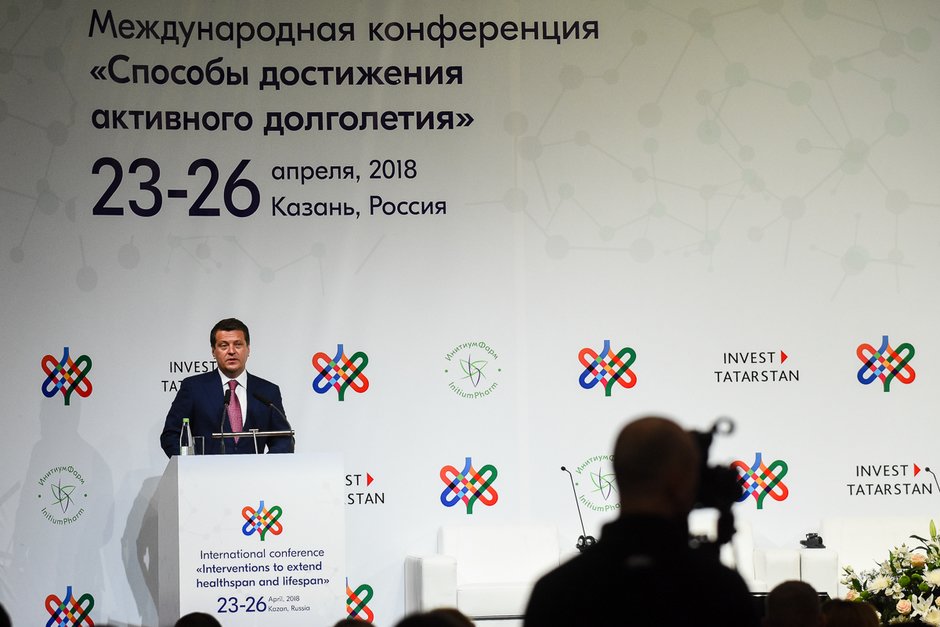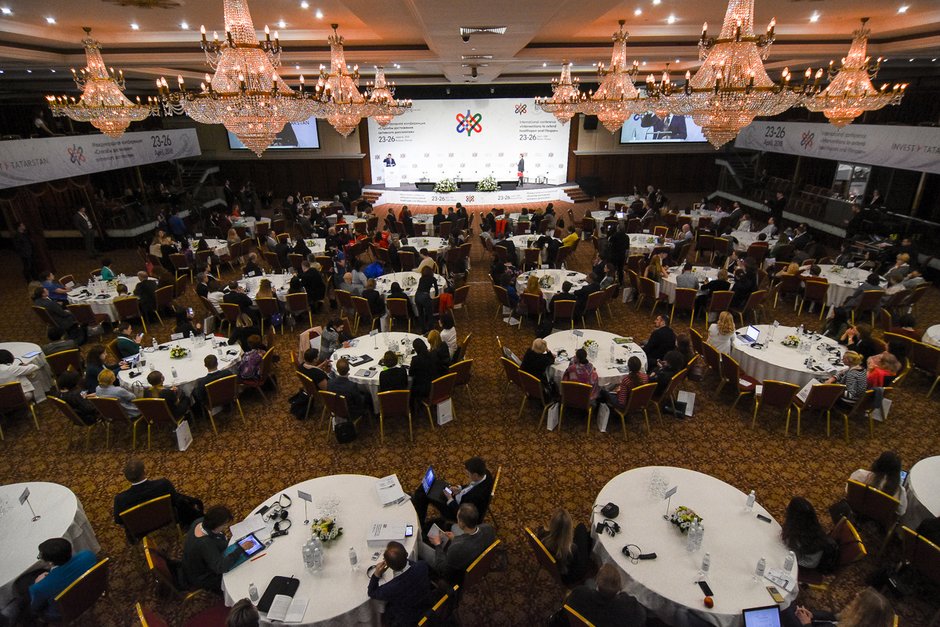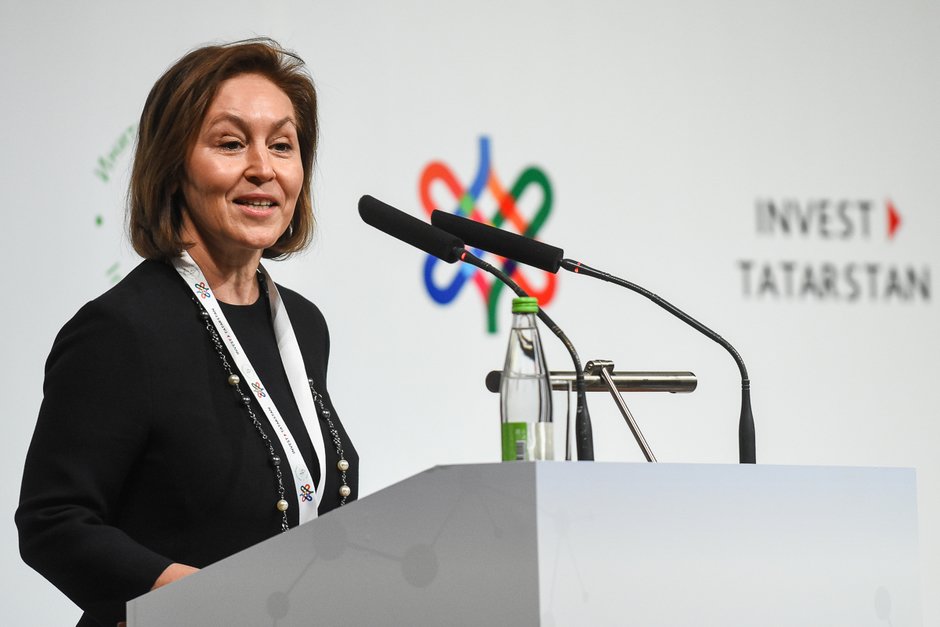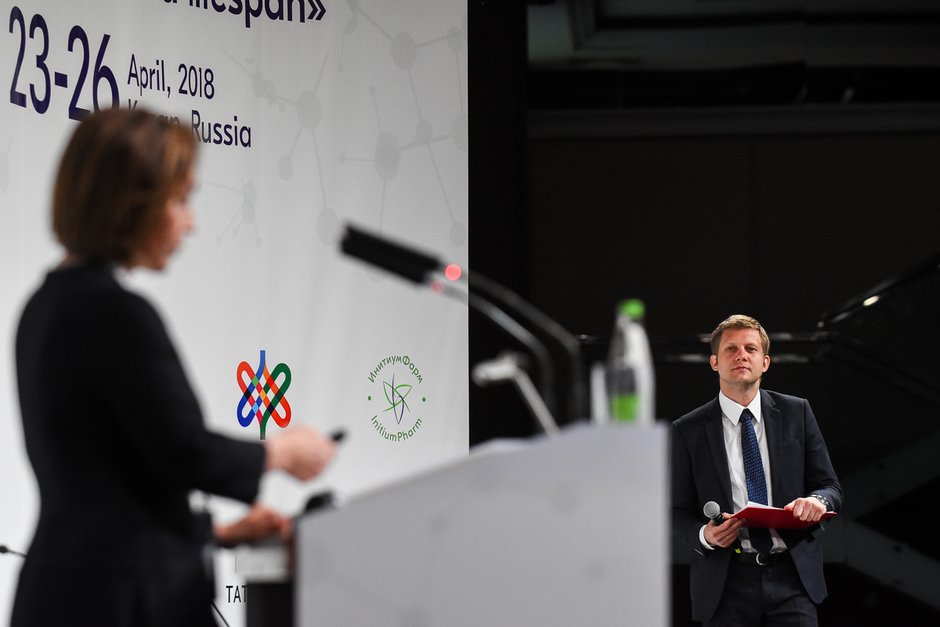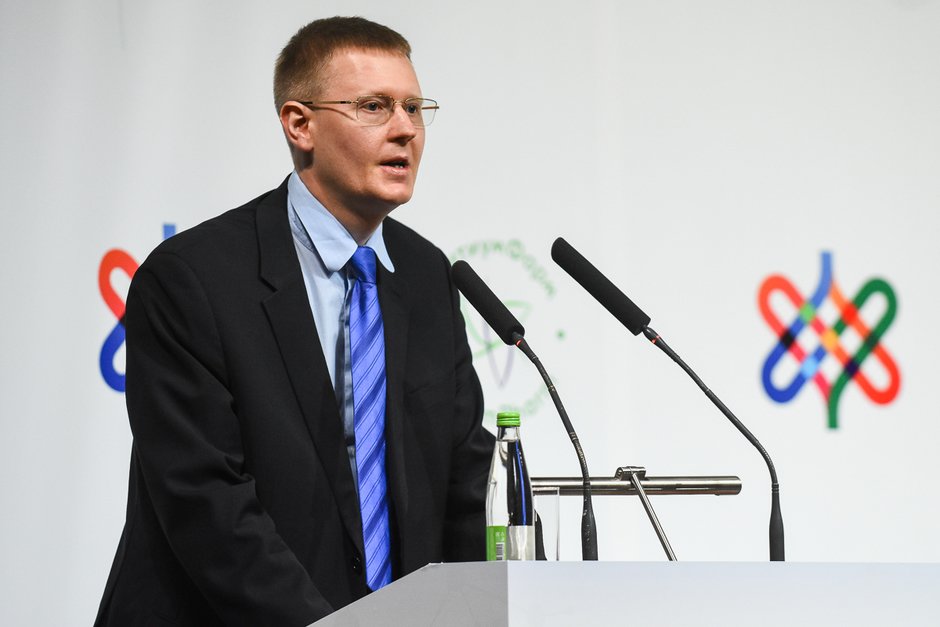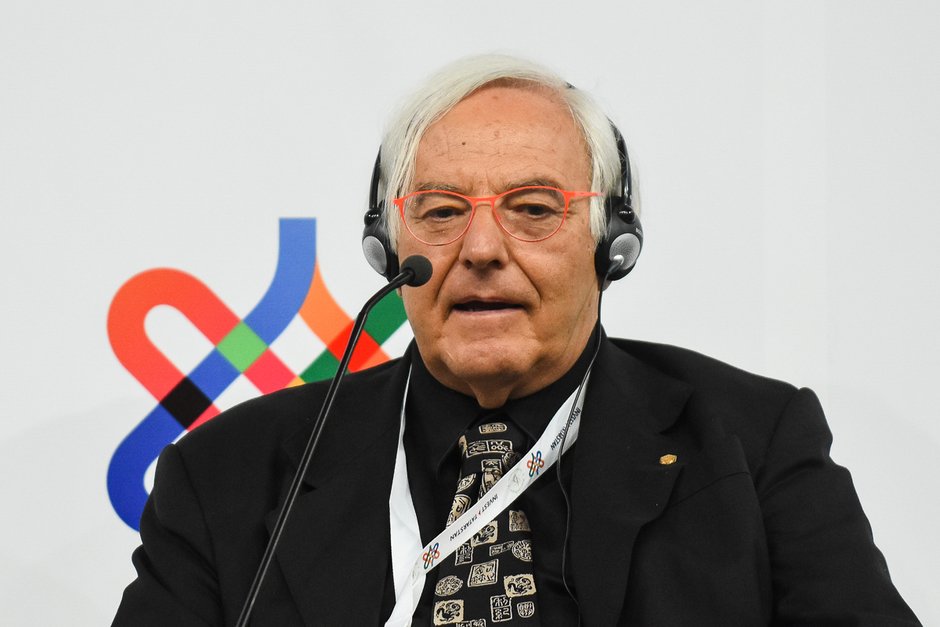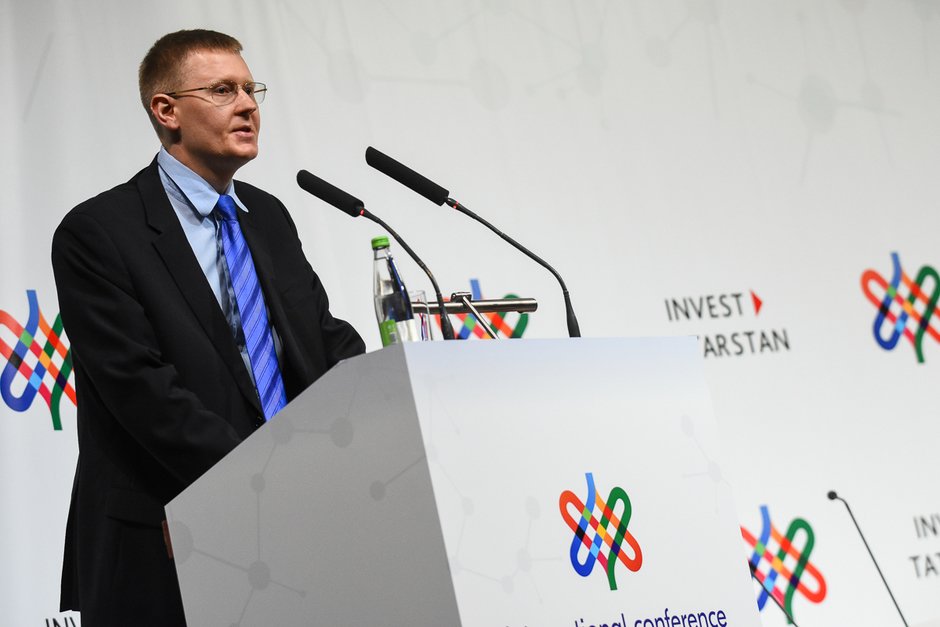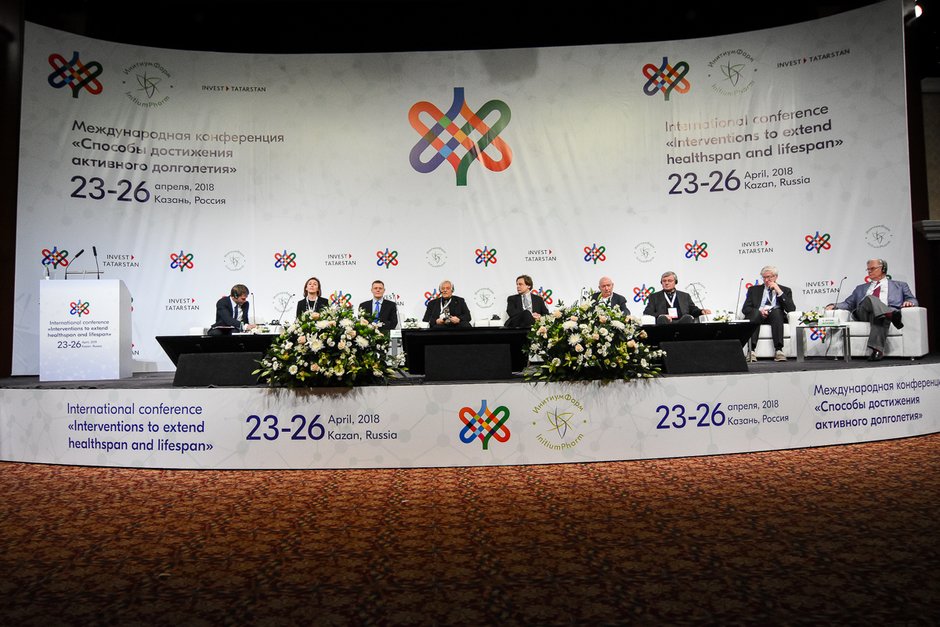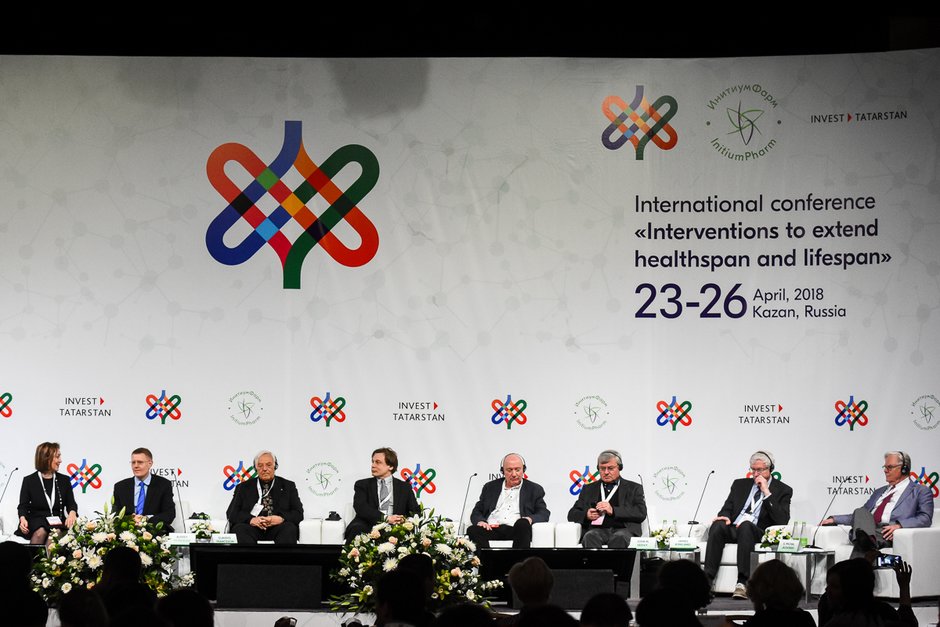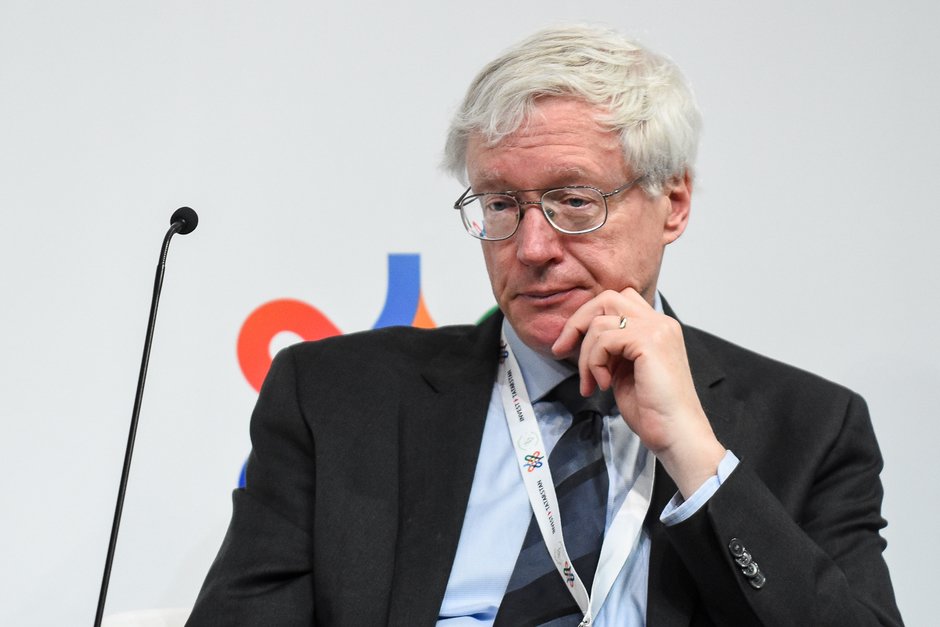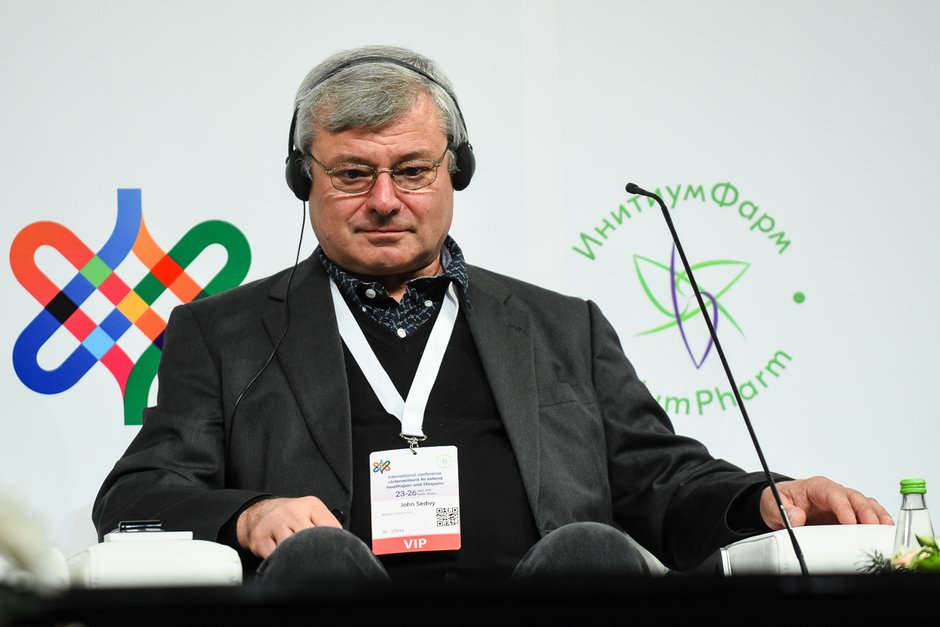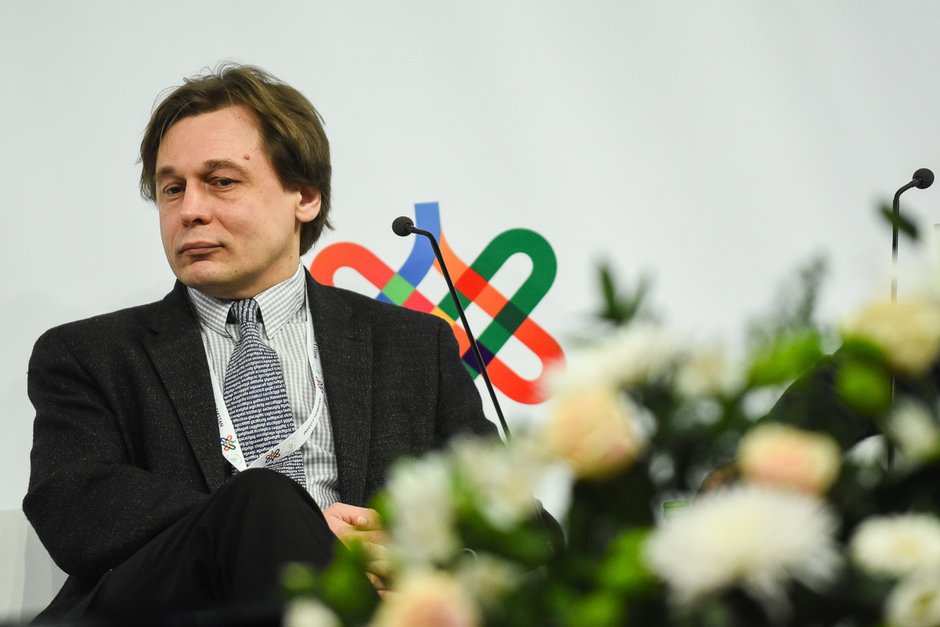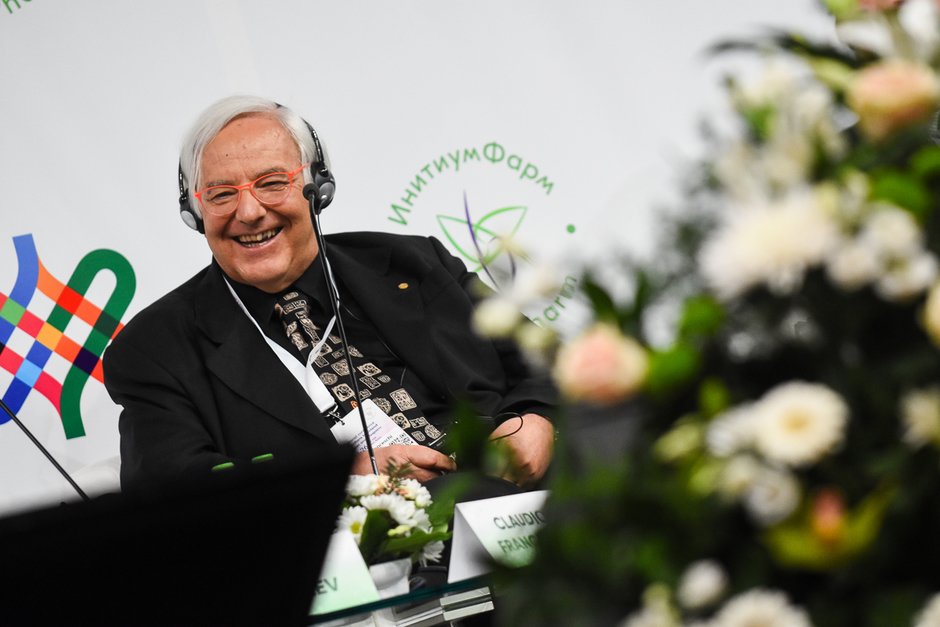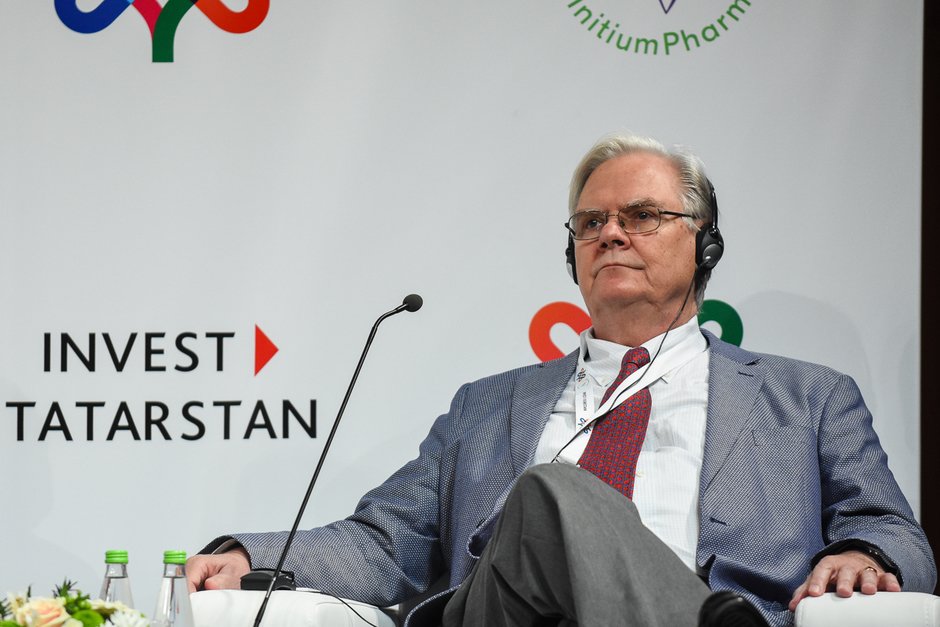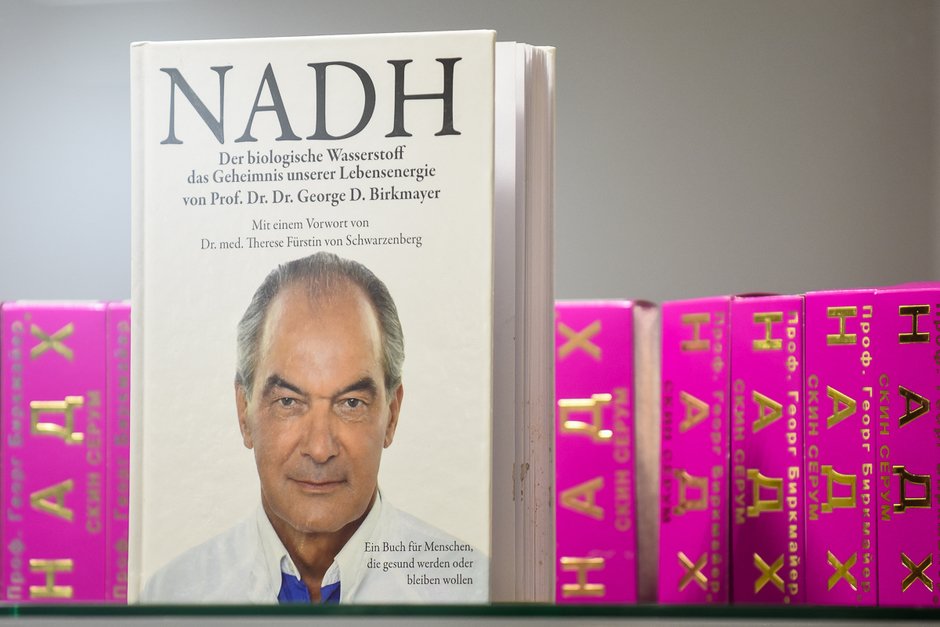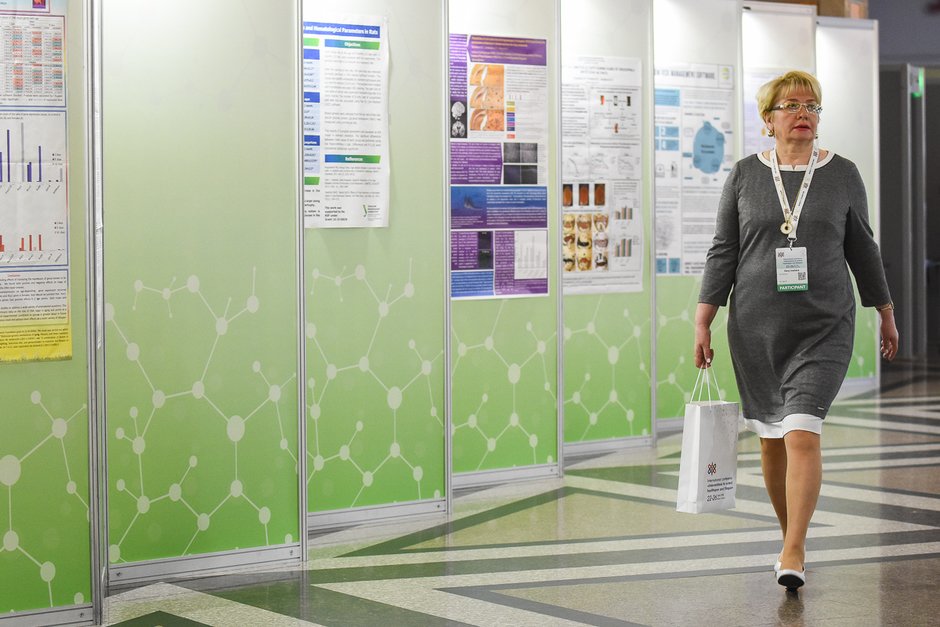''Extension of life to 150-200 years is a matter of the nearest tens of years''
‘‘Live long and happily’’: how nurses looked for a recipe for longevity in Kazan
The problem of creation of an ''anti-age pill'', that's to say, ways to prolong human life, is discussed in Korston Hotel, Trade and Leisure Complex's Ball Hall in Kazan. Scientists from 17 countries of the world gathered at ''Interventions to Extend Healthspan and Lifespan'' international conference, which takes place in the capital of Tatarstan, on 23 to 26 April. Ageing mechanisms, the influence of heredity, environmental factors and pharmaceutical substances on them and ageing biomarkers. ''It's a decisive attempt to define what an old age is and how to live longer,'' claimed TV presenter Boris Korchevnikov, who served as moderator of the discussion ''Prospects and Tendencies in Radical Extension of Healthspan'', which the participants of the international conference started their work with on 23 April morning.
Tatarstan capital is two years ahead of Russia
It turned out that at the opening ceremony of ''Interventions to Extend Healthspan and Lifespan'' conference Kazan had things to boast about in front of the specialists fighting to extend lifespan. Giving a speech in front of the forum participants, the mayor of Kazan stressed that he had tried to solve this, in his opinion, ambitious problem since he came to office in 2005:
''Short lifespan concerned me the most – just 65 years, while men, it's terrible to remember, didn't see themselves retire on average… We created a package of measures to solve this problem. We seriously improved treatment establishments… We built tens of modern sports facilities, which are available for citizens. We also have sports infrastructure today – it's one of the latest in Russia. We did a huge job to improve the transport infrastructure and road traffic and took a course on ecological transport. We did a large-scale job to improve urban parks and squares…''
The Kazan mayor believes this package of measures enabled to increase an average lifespan of citizens of Kazan to 69 years by 2010, to 74 years – by 2015. And today it is 75 years, which is two years more than an average lifespan in Russia.
It's easier to find an ''anti-age pill'' in Italy
Moderator of the plenary session or, more precisely, the discussion about prospects for life extension Boris Korchevnikov insisted that a simple question, which interested not only specialists but, in general, all people, was to be the main topic for discussion: ''When will an ''anti-age pill'' appear?''. But as it turned out soon, there isn't an answer to it. But there is a variety of prescriptions for ''substances'' that can at least partly substitute such a pill.
For instance, professor from the University of Bologna and participant of Genetics of Healthy Aging research project Claudio Franceschi in his views on interventions to extend life comes from the postulate ''the person is what he eats, what breathes, etc.''. And he puts an example of Italy where today lifespan is higher than average Russian. So according to him, it's linked with healthy Italian cuisine, full life of old people in a family – it's considered shameful in Italy if a person dies in a retirement home. And Italy has a variety of small villages where old people are provided with comfortable living conditions.
''Does this mean that if I move to Italy now, I will live 13 years longer than in Russia?'' Korchevnikov asked and noticed this topic was becoming important, as he was almost on the half road to death at 35, according to Russian standards.
Franceschi assured without any doubt that he would live longer and added that nowadays there were many methods to define a biological age of a person, which can be different from the chronological by tens of years. So the higher your biological age is, the higher the probability of age-related diseases is, and the probability to live long is lower.
Old age as disease
Many researchers, including Claudio Franceschi, are inclined to consider an old age as a kind of disease and consequence of the accumulation of bio-waste in the organism – products of the destruction of cells after inflammatory processes, parasitic bacteria, microbiotas, that's to say, everything that what causes inflammatory process in a human organism. And the research with a complicated name ''whole-genome sequencing'', which be soon available for almost all Russians (its price will be maximum $150 in Russian medical centres the next years), allows to define the probability of appearance of some diseases at a certain age with high accuracy. In other words, in many researchers' opinion, it will, in fact, forecast the age when one dies.
However, not all specialists agree with it. As representative of Harvard Medical School Vladimir Gladyshev claimed to Realnoe Vremya's correspondent, the probability of development of diseases and date of death not always are linked directly.
''Medicine works directly with some diseases. If we can win a disease, we won't be able to postpone all diseases at once.''
In Gladyshev's opinion, it's at least early to say that medicine knows how to postpone ageing and, moreover, victory over death. And the Harvard representative doesn't share the optimism of his Italian colleague Claudio Franceschi who thinks that ''the issue of extension of life to 150-200 years is a matter of research and the nearest tens of years. What's more, he admits that further extension of human longevity will be under question or even a reverse process will begin in the next tens of years.
''As natural selection processes stop working together with the development of medicine, people who couldn't give birth in previous centuries produce offspring today. This is why I think genetic failures, mutations will be more often detected as time goes by. And it's unclear what will happen to these mutated organisms. The next generations will probably be less healthy…''
While researcher from Brown University John Sedivy supposes that bad habits and love for fast food can impede from increasing a lifespan, so the epidemic of obesity threatens the humankind. In his speech, he complained that people got different diseases due to their food habits, which reduce their life and worsen its quality, take medications but don't learn from what happened to them, continue eating unhealthy products – sausages, pastry, etc.
Old age doesn't come alone…
John Sedivy thinks that ageing happens according to a Russian saying ''if a claw is caught, the bird is lost''. He raised the problem of multimorbidity, that is, a combination of numerous chronic or acute diseases and medical states in one person. According to researchers' data, if a person has a disease as time goes by, others let themselves be known soon then. And ageing can be considered as a total of augmenting inflammatory processes.
Vadim Gladyshev supports this position: ''What is death? It's accumulation of damages in the organism.'' To cope with it, one needs to ''consciously interfere in this process.''
… considers gender differences
Scientists use experimental animals – mice and worms – to try to interfere. And sometimes it already becomes possible to redirect their life cycles. But it's more complicated with a human being. For instance, the same medications influence men and women differently. And what is able to extend a man's life doesn't work on women, and vice versa.
In addition, it turned out the extension of lifespan is not always good… for women because today not only women's lifespan but also the number of women live this life in the state of decay and serious disease grows around the world. The conference participants stress that, for instance, the majority of men die now after a heart attack, while ladies survive. But it's already difficult to call this painful existence full life.
No pill but recipe
An answer to the question that Boris Korchevnikov wasn't tired of asking the conference participants – about the miraculous anti-age pill – was finally given by each of them or rather prescribed considering the heredity and comfort level of conditions of existence, full life. And this recipe is simple – self-restriction and discipline, which, as Coward in Gaidai's comedies said, ''all kinds of bad extravagancy''. And in answer to the question of Realnoe Vremya what Korchevnikov himself was ready to refuse for the sake of a long happy life, the TV presenter replied that he remembered an old Soviet anecdote about acceptance to the party where the candidate who agreed to refuse all joys for the sake of party said he was ready to die, like what needed such a life. Because according to Boris, he doesn't drink alcohol, he doesn't smoke, he doesn't have bad habits and food weakness and takes vitamins and useful dietary supplements, and so he has nothing to refuse.
Versatile businesswoman who successfully carried out both educational and pharmaceutical projects Fania Maganova brightened the impression of this correct but not very inspiring picture of healthy longevity. She emphasised that one should ''age happy''.
